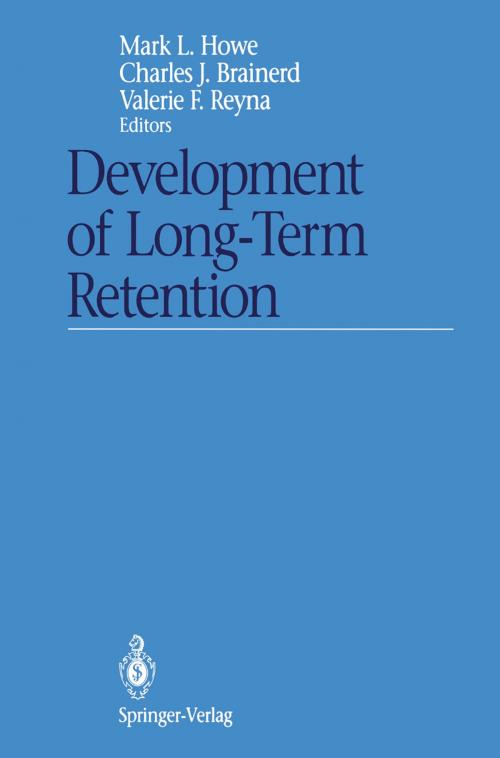Development of Long-Term Retention
Nonfiction, Health & Well Being, Psychology, Psychotherapy, Child & Adolescent, Child Development, Medical| Author: | ISBN: | 9781461228684 | |
| Publisher: | Springer New York | Publication: | December 6, 2012 |
| Imprint: | Springer | Language: | English |
| Author: | |
| ISBN: | 9781461228684 |
| Publisher: | Springer New York |
| Publication: | December 6, 2012 |
| Imprint: | Springer |
| Language: | English |
For a number of decades now the study of children's memory development, with few exceptions, has been synonymous with the development of pro cesses that lead to the initial encoding and immediate retention of informa tion. Although there is little doubt that the study of such acquisition pro cesses is central to understanding memory development, the long-term retention of previously encoded information represents at least as important a component of children's memory. Indeed, as both students of memory development and educators, our interest is in the maintenance and utiliza tion of knowledge over considerable periods of time, not just in the immedi ate (e. g. , classroom) context. Clearly, then, without an understanding of how recently acquired information is maintained in memory over extended periods of time, our theories of long-term memory development remain incomplete at best. Although children's forgetting and reminiscence was a topic of inquiry early in this century, it is only recently, due in part to the current controversy concerning the reliability of children's eyewitness testimony, that the study of long-term retention has resurfaced in the scientific literature. The purpose of this volume is to draw together some of the principals involved in this resurgence to summarize their recent research programs, present new and previously unpublished findings from their labs, and outline the issues they believe are important in the study of children's long-term retention.
For a number of decades now the study of children's memory development, with few exceptions, has been synonymous with the development of pro cesses that lead to the initial encoding and immediate retention of informa tion. Although there is little doubt that the study of such acquisition pro cesses is central to understanding memory development, the long-term retention of previously encoded information represents at least as important a component of children's memory. Indeed, as both students of memory development and educators, our interest is in the maintenance and utiliza tion of knowledge over considerable periods of time, not just in the immedi ate (e. g. , classroom) context. Clearly, then, without an understanding of how recently acquired information is maintained in memory over extended periods of time, our theories of long-term memory development remain incomplete at best. Although children's forgetting and reminiscence was a topic of inquiry early in this century, it is only recently, due in part to the current controversy concerning the reliability of children's eyewitness testimony, that the study of long-term retention has resurfaced in the scientific literature. The purpose of this volume is to draw together some of the principals involved in this resurgence to summarize their recent research programs, present new and previously unpublished findings from their labs, and outline the issues they believe are important in the study of children's long-term retention.















